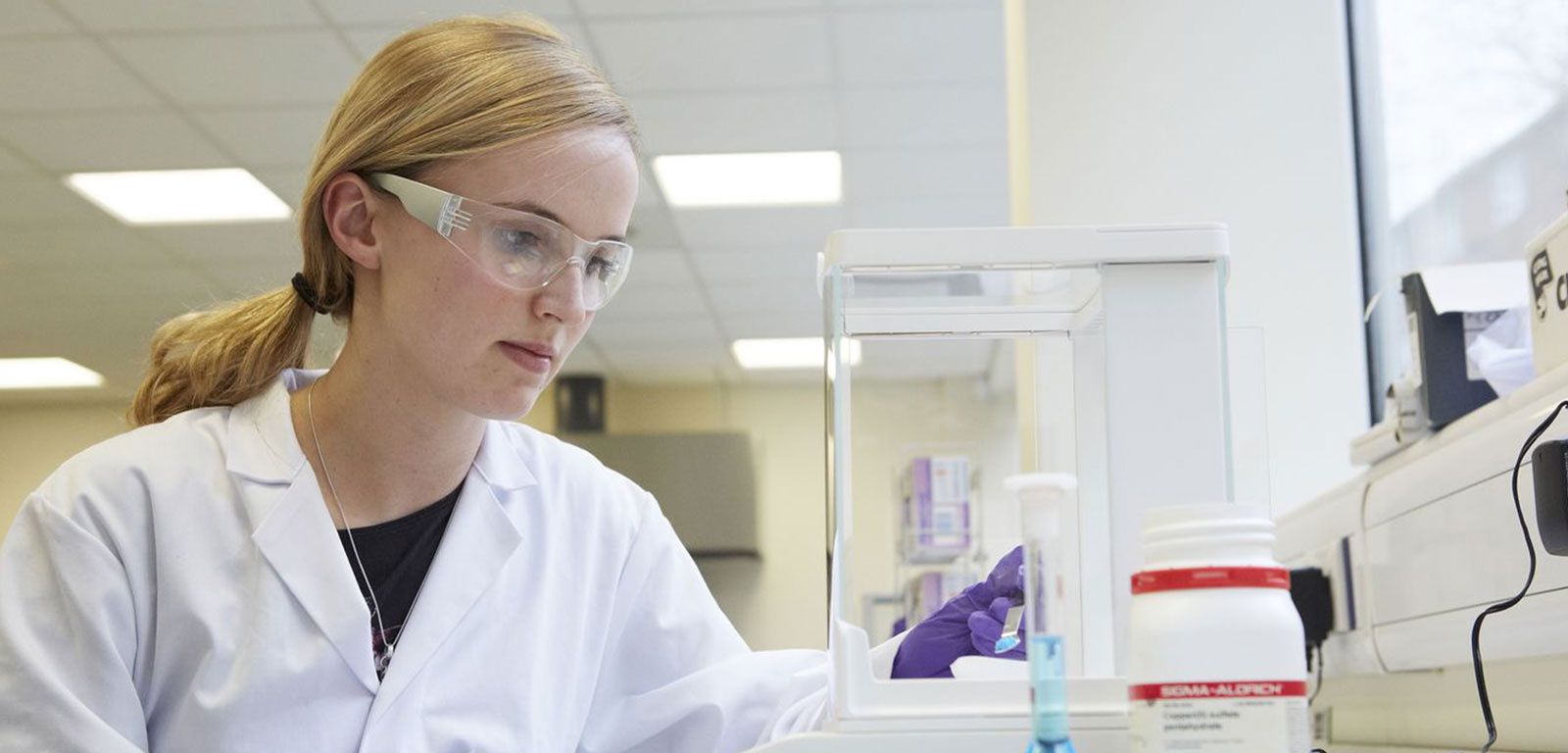

A UK 2:1 honours degree, or its international equivalent, in chemistry, or a closely related discipline, with a strong chemistry component.
We may also consider a UK 2:2 honours degree, or its international equivalent, with relevant work experience and supportive references.
For 2020 entry we accept the following English language qualifications at the grades specified*:
IELTS Academic: total 6.5 with at least 6.0 in each component.
TOEFL-iBT (including Special Home Edition): total 92 with at least 20 in each section. We do not accept TOEFL MyBest Score to meet our English language requirements.
PTE Academic: total 61 with at least 56 in each of the Communicative Skills scores.
CAE and CPE: total 176 with at least 169 in each paper.
Trinity ISE: ISE II with distinctions in all four components.
For 2021 entry we will accept the following English language qualifications at the grades specified*:
IELTS Academic: total 6.5 with at least 6.0 in each component.
TOEFL-iBT (including Special Home Edition): total 92 with at least 20 in each section.We do not accept TOEFL MyBest Score to meet our English language requirements.
CAE and CPE: total 176 with at least 169 in each paper.
Trinity ISE: ISE II with distinctions in all four components.
*(Revised 21 February 2020 to remove PTE Academic from 2021 entry requirements. Revised 21 April 2020 to include TOEFL-iBT Special Home Edition in 2020 and 2021 entry requirements.)
Your English language qualification must be no more than three and a half years old from the start date of the programme you are applying to study, unless you are using IELTS, TOEFL, PTE Academic or Trinity ISE, in which case it must be no more than two years old.
Medicinal and Biological Chemistry requires a thorough understanding of molecules, their structures, properties and synthesis, but it also demands the chemical understanding of the nature of biological structures, from macromolecules to cells, the design of pharmaceutical materials in the laboratory and their function in clinical settings.
The knowledge and skills acquired in the course will leave graduates well equipped to compete for positions related to 'drug discovery' in chemical, pharmaceutical or biotechnological companies.
The degree consists of advanced lecture courses in:
Synthetic Organic Chemistry
Chemical Biology
Medicinal Chemistry
Biophysical Chemistry
These are studied concurrently with a predominantly practical based course offering an introduction to research methods.
Students then proceed to a period of full-time research project work, leading to the submission of their Masters dissertation.
More info: Click here
Lectures are given by leading researchers in the area of medicinal and biological chemistry.
The lecture courses are supported by tutorial sessions and assessed by examination in May.
The Introduction to Research Methods course includes an exciting problem solving exercise where you learn important skills such as Communicating Science, Innovation, Dealing with Intellectual Property and Grant Application Writing, together with a literature survey and written report, defining the scope of the subsequent individual research project work.
Find out more about compulsory and optional courses
We link to the latest information available. Please note that this may be for a previous academic year and should be considered indicative.

Graduates are well suited to take up roles in the chemical and pharmaceutical industries, either in research and development or sales and marketing. You will gain valuable work experience in a real-life research environment.
Alternatively, a Masters degree is a precursor to a PhD degree.
Our courses teach students the valuable skills they need to also move into other areas outside chemistry. Careers in IT, management or finance are possibilities after completing your degree.
